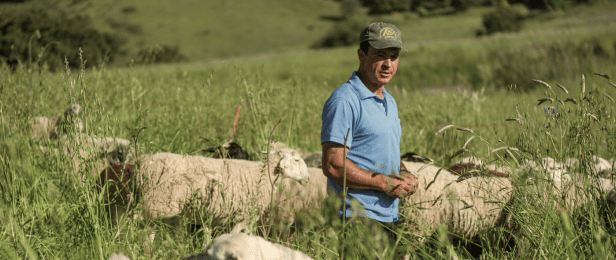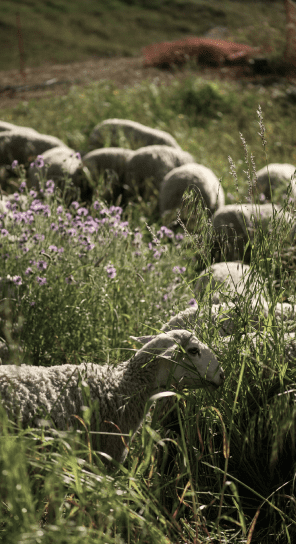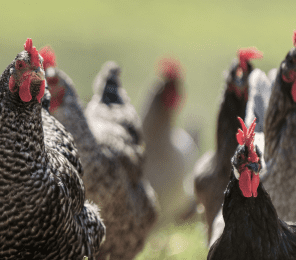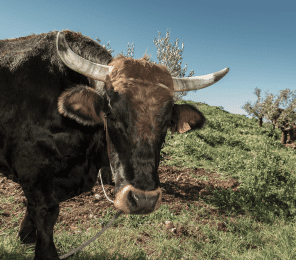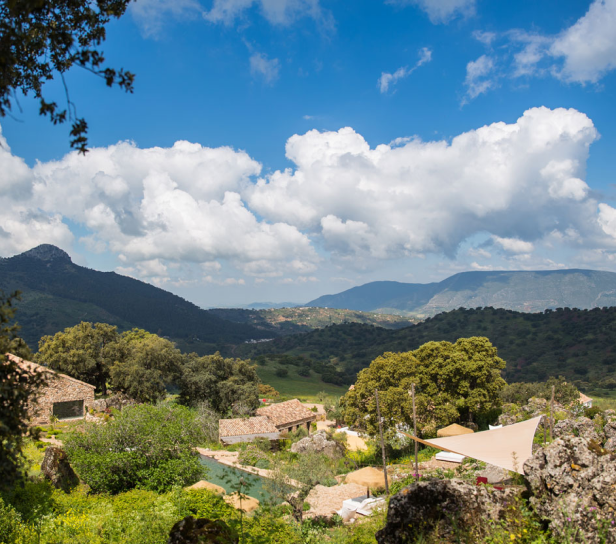Organic Farm
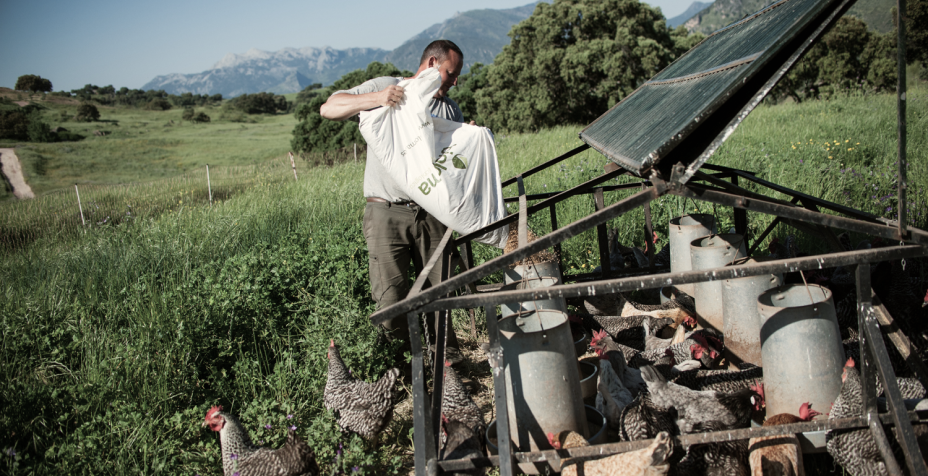
Our approach to farming is open and experimental; a mix of tradition and innovation, but based on permaculture and biodynamic principles.
Added to this are the comings and goings of volunteers, experts and guests from all walks of life which brings fresh thinking, a kind of philosophical polyculture that sows bright new ideas about better ways of doing things in all areas of life.
We produce most of what we eat on the farm. The vegetable garden is planted with seasonal produce all year round. We are committed to the recovery of local varieties that bring back the flavours of the past, such as lettuce, tomato, aubergine, mizuna, rocket, carrot, parsnip, rutabaga or kohlrabi, fennel, cabbage, red cabbage, beans, peas, broad beans, etc. Our main defence against pests is that we try to have a good crop association with aromatic plants among them and trap plants that divert attention from the garden such as nasturtiums or tagetes that repel whiteflies and aphids.
In 2020, we began our most recent project ‘The Fruit Tree Forest’. We have more than 50 varieties of fruit trees. This combination creates synergy between the species, and we try to imitate the characteristics of a natural forest to maintain the fertility of the soil. We have some old varieties such as Pero de Ronda, Manzana Reinetas white and grey, Manzana Miguela, Pardo Lindo, Albaricoque Moniquí and small Peras Castell, as well as peaches, apricots, pears, quinces, figs, chestnuts, plums, cherries and oranges.
We have created a medicinal garden, inspired by the ancient monastery gardens that served as living pharmacies, containing over 350 species of healing, soothing and invigorating plants, used in foods and infusions (as well as lotions and balms).
Our olives are harvested by hand and pressed in a matter of hours in our olive mill. We produce approximately 800 litres of extra virgin olive oil per year. We also harvest hundreds of kilos of almonds for almond milk and almond oil as well as for consumption.
The Serranía de Ronda has a privileged topography, with altitudes of up to 1000 metres above sea level and the influence of two winds from the Mediterranean Sea (Levante) and the Atlantic Ocean (Poniente) which, together with a diversity of soils, help to obtain high-quality grapes. The Romans already noticed this and brought vines more than 2000 years ago to Acinipo, the ancient city of Ronda.
We think that life in the soil is the most important thing to have excellent quality grapes, as well as adapting to climate change. We intend to go beyond biodynamics and we are focused on regenerative viticulture. We have always cultivated vineyards, in the beginning, we opted for international grapes in the whole area. Focusing on our objective, we have turned our attention to the authenticity of the area and recovered varieties from Andalusia, the Mediterranean and those that are adapted to our climate and soils. For the last 18 years, we have had 0.5 hectares of vineyards in production with the Petit Verdot and Blaufrankish varieties. The latter, although a variety widely planted in Austria and Germany (Lamberger), is proving to be a variety that belongs to the Mediterranean, and the evidence is that it has settled very well in our soil. We are also planting new varieties in other parts of the estate, and we have opted for Garnacha, which is very much a Mediterranean variety and can produce great wines.
At La Donaira many different species of animals coexist in harmony and help us to balance our farming systems. We have hens that provide us with fresh eggs every morning, as well as sheep and goats for milk and cheese. One of our main principles is the preservation of endangered species, so we care for and breed the Andalusian Donkey and the Pajuna Cow, which live alongside our Lusitano horses, bees, wagyu cows, geese and geese.
We share our natural environment with a multitude of Iberian wildlife, such as wild boar, roe deer, deer, deer, birds of prey such as vultures and eagles, which live and breed on the farm and can often be seen flying overhead. A multitude of small birds brightens up our mornings with their song, although they are rarely seen. Wildlife is a great ecological and environmental treasure for the farm, all animals have their role in the food chain and the conservation of biodiversity. And in keeping with our mission to preserve species, we have built a voladero to breed partridges, quails and pheasants and gradually set them free, as well as the construction of more than 200 nesting boxes spread over the 700 hectares to provide shelter for a multitude of bird species.




